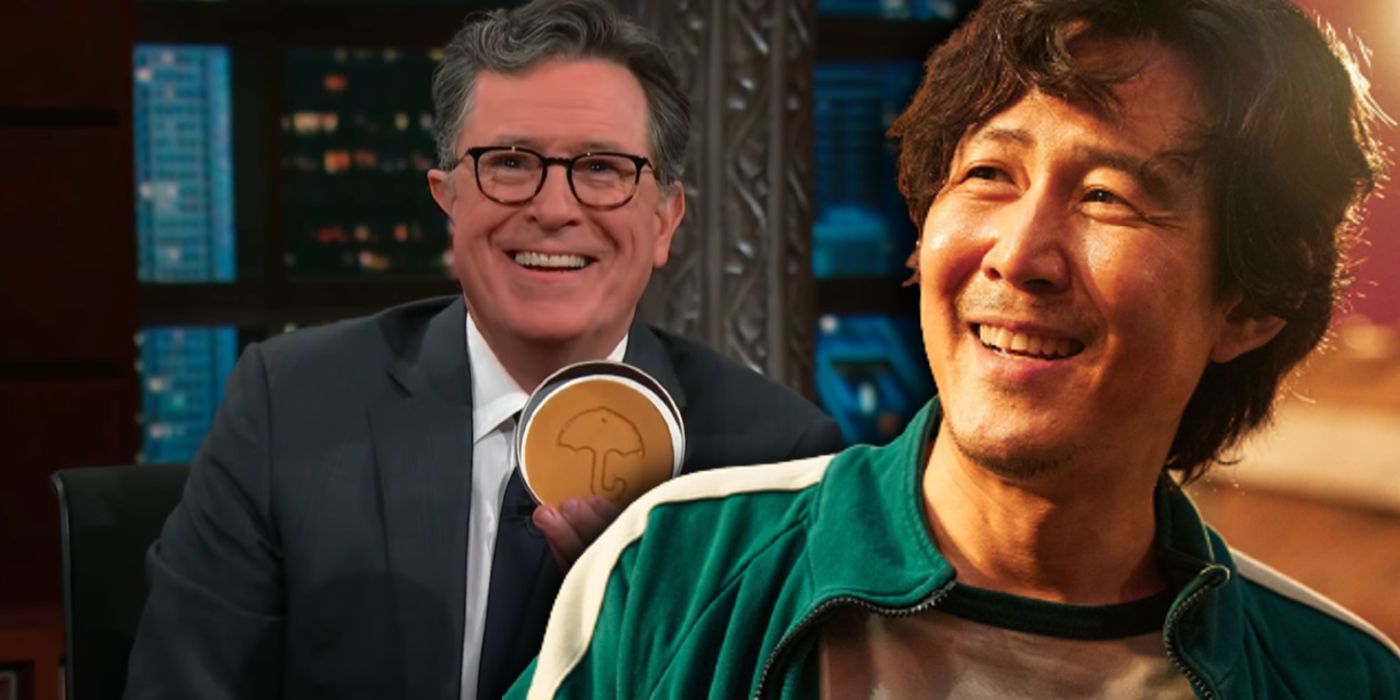Squid Game star Lee Jung-jae recently faced The Late Show host Stephen Colbert in the dalgona candy challenge – one of the most memorable games featured in Netflix's latest hit series. Squid Game first released on the streaming platform last September to near universal acclaim from both critics and general audiences alike. In the relatively short period of time since its release, the show has shattered viewership records and is currently Netflix's most popular original series of all time. Squid Game's premise revolves around a series of death games that a group of 456 contestants compete in to win the grand prize of ₩45.6 billion KRW (approximately $38.7 million USD).
The second game featured in the series is based off of a popular childhood pass-time in South Korea, involving shapes engraved into circles of burnt sugar called dalgona. Players must successfully carve the engraved shape out of the dalgona circle to succeed – a game colloquially referred to as "seoltang bbopki" (sugar picking). Lee's character, Seong Gi-hun, struggles in the show to carve out a difficult shape from his dalgona. Lee himself, however, got a bit luckier.
During an interview on The Late Show, Colbert surprised Lee with a cylinder of dalgona recognizable to any fan (or in this case, star) of the series. Lee fortunately received a dalgona with a simple triangle engraving – a shape so simple that he completes the challenge deftly with his hands (how the game is traditionally played in South Korea) without using the included pick. Colbert isn't as lucky; he fails immediately to carve out the umbrella shape from his own dalgona. Check out the fun clip below:
Click here to view the video on YouTube
Outside of Squid Game, dalgona itself has been a fixture of South Korean culture since the Korean War, when mainstream sweets like chocolate were considered luxury items. The ease and accessibility of dalgona made it an alluring alternative to the more expensive confections that were imported from abroad. Seoltang bbopki was widely considered to be a local tradition for decades, but it has recently received global attention due to its prominent role in Squid Game's second challenge.
Squid Game's meteoric success has sparked a worldwide interest in South Korean popular culture and entertainment. Already, major western production studios are green-lighting English-language adaptations of acclaimed Korean dramas and films. With general audiences' interest in Korean intellectual properties at an all time high, it's likely that more IP from South Korea will make its way into the west in the coming years, including a potential Squid Game season 2.

